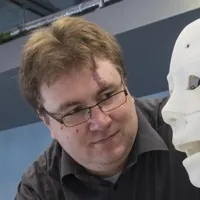About the project
As AI-generated deepfakes pose significant threats to truth and authenticity, this PhD project stands at the forefront of technological innovation and ethical responsibility. Focusing specifically on detecting deepfakes crafted using advanced methods like DALL-E3, this project’s objective is to address the pressing need to safeguard digital integrity.
By concentrating on evolving generative models and language-driven techniques, you'll develop advanced continual learning algorithms that not only unravel the complexities of evolving language-driven deepfakes, but also prevent the negative effects of memory loss in the learning process.
Your approaches will go beyond conventional methods with inspiration from the remarkable language understanding abilities of ChatGPT to integrate innovative language-driven detection techniques.
This project is expected to serve as a beacon, pioneering the way forward in the realm of deepfake detection. By bridging the gap between evolving generative models and language-driven techniques, we aim to set new standards in the field, ensuring not just technological advancement but also the responsible and ethical use of AI-driven technologies in society.
The Vision, Learning, and Control (VLC) group at the School of Electronics and Computer Science (ECS) is opening two PhD positions. We cordially invite individuals who are passionate to the realms of computer vision and machine learning to apply for these positions. The successful candidates will be engaged into the cutting-edge research within the supportive and collaborative environment of the VLC group.


